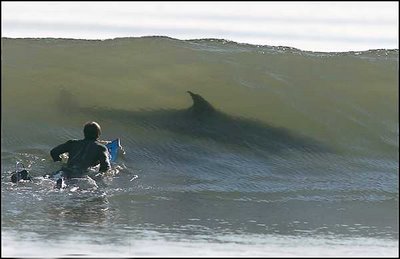What I Learned From Kurt Vonnegut (1922-2007)
In the spring of 1983, my freshman year at Dartmouth College, Kurt Vonnegut came to speak at my humanities class, a survey class on literature from Homer to Twain. He came at the invitation of Jim Cox, our slightly outrageous and flamboyant professor. (I seem to recall that Vonnegut may have been in town to visit his brother, but I am not sure about that.)
I had never read any of Vonnegut's books, but I am sure that I had at least heard of him and of his more famous works. In anticipation of his visit, I read one of his novels, I believe it was Slapstick; I would have to reread it to make sure. I know it was not one of his more famous titles.
At 10 in the morning the day of his visit, Vonnegut walked into our classroom drunk, his eyes red and watery, his step irregular, and his demeanor somewhat wild and unsteady. From the first row I could smell the whiskey on his breath. After a wandering half hour lecture about the writing process and the success of Slaughterhouse Five, he opened the room up for questions. I immediately raised my hand.
"In your novel [Slapstick], in the first part of the book the two main characters agree that it is impossible for two people to really love each other, but at the end they both say 'I love you' to each other. What changed? Did they learn something along the way? Or were they wrong to begin with? And do you think love is actually possible between two people?"
Vonnegut stopped and stared at me, shifted his weight from one side to the other, pressed his right hand against his forehead, squinted, and then said, "I don't know, I never read that one," and pointed to the next questioner.
My first reaction was a flash of anger at being dismissed so quickly. But after a moment I realized he had given me a deeper insight. During his lecture he had spoken of the feeling of being a channel through which the muses sing. If this is true, then he is not necessarily an authority on the intricacies of his plots and and details his characters. Instead, his novels had flowed through him, many never to be thought of again. Or, put another way, although he was the author of Slapstick, it was no longer his novel. The book has a life of its own, and he was out of the loop.
After this rough start, Kurt Vonnegut has grown on me immensely. I have watched several interviews with and read many essays by him since that day, and I have read two or three other books of his. My favorite so far is Bluebeard. I have read it over and over. I have come to deeply appreciate his humanity, his sense of humor, and his writing craft. At the same time, I have always known first hand that he was an imperfect person, and that he could share with me a deep truth about art and writing because of it.
Labels: Dartmouth, my history

